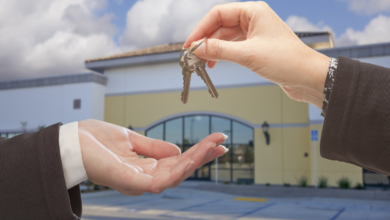5 Ways to Harness the Power of Recurring Revenue
Tom Bronson

Do-it-yourself classes, seminars and workshops based on a subscription model can create an education revenue stream that also engages the communities and establishes a store as a go-to resource for repair know-how.
These innovative, new avenues can provide stable cash flow, improved customer loyalty and enhanced business valuation.
In the ever-evolving business landscape, recurring revenue has transformed how businesses project their income and ensure sustainability. Unlike one-off sales, recurring revenue generates a steady income stream through ongoing transactions. For hardware stores, traditionally known for transactional relationships, adopting recurring revenue models promises stable cash flow, improved customer loyalty and enhanced business valuation.
A few months ago, I spoke at The Hardware Conference in Marco Island, Fla., and we explored the untapped potential of recurring revenue for hardware stores. Here, in this exclusive to The Hardware Connection, let’s explore that concept a little further by delving into innovative avenues business owners can leverage for continual financial growth, maximizing business value and, eventually, a dream exit.

Creating a subscription service for consumable products such as mulch, bird seed and firewood allows customers access to benefits such as free delivery, discounts and early access to new products or sales.

Understanding Recurring Revenue
Let’s start by understanding the difference between recurring revenue and re-occurring revenue. Recurring revenue is when customers pay you a regular monthly fee for a service you are providing—think cable or satellite television. Re-occurring revenue is when customers don’t pay a fee but buy the same things over and over—think oil changes or car washes. Hardware stores can enjoy the benefits of either, or both, of these models. For simplicity in this article, let’s just use RR, which you can consider interchangeable with these terms.
RR is highly predictable, stable and expected to continue. This financial model is a strategic cornerstone for businesses such as streaming services, where customers pay a subscription fee to enjoy uninterrupted services. This predictability and consistency make recurring revenue a beautiful financial structure for businesses across various sectors, including hardware stores. It also attracts buyers to businesses who can successfully demonstrate recurring revenue growth.
Integrating a recurring revenue stream can be transformative for a hardware store, which traditionally relies on the purchase-when-needed approach. RR provides financial predictability, aids in better inventory management, strengthens customer relationships and offers competitive market advantages. To harness these benefits, though, hardware stores must step out of the conventional framework and adopt innovative strategies tailored to customer retention and consistent revenue generation.
5 Recurring Revenue Strategies for Hardware Stores
Hardware retailers have several RR opportunities already in place. Here are five RR strategies you may want to consider for your business:
1. Membership/Subscription Programs: One of the most straightforward methods to introduce a recurring revenue model is through membership or subscription programs. Hardware stores can create a system where customers pay a regular fee to access exclusive benefits. These privileges could include discounts, free delivery, early access to new products or sales, and more.
For instance, a DIY Enthusiasts Club could cater to frequent buyers or home-improvement aficionados, offering them valuable resources, exclusive tutorials and special discounts on tools and materials. Hardware stores encourage customers to remain engaged and loyal by providing these targeted value propositions, ensuring a consistent revenue stream.







